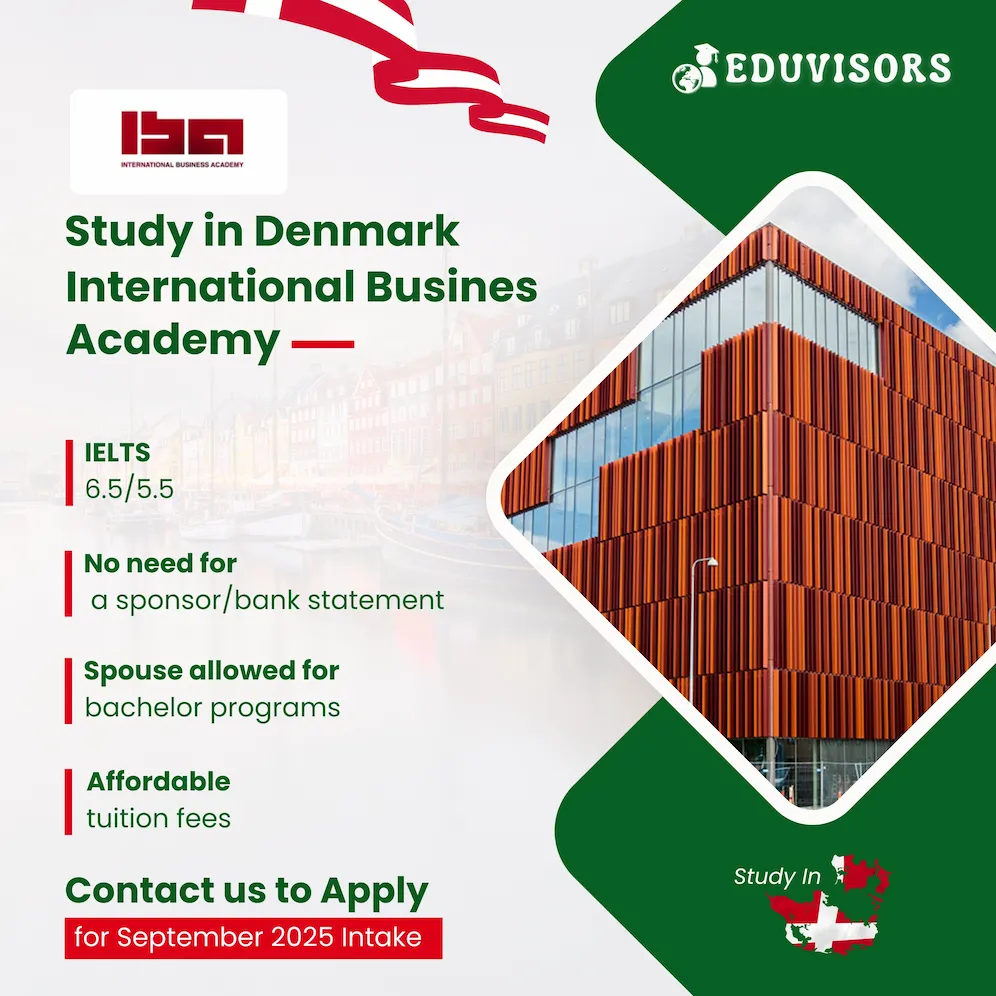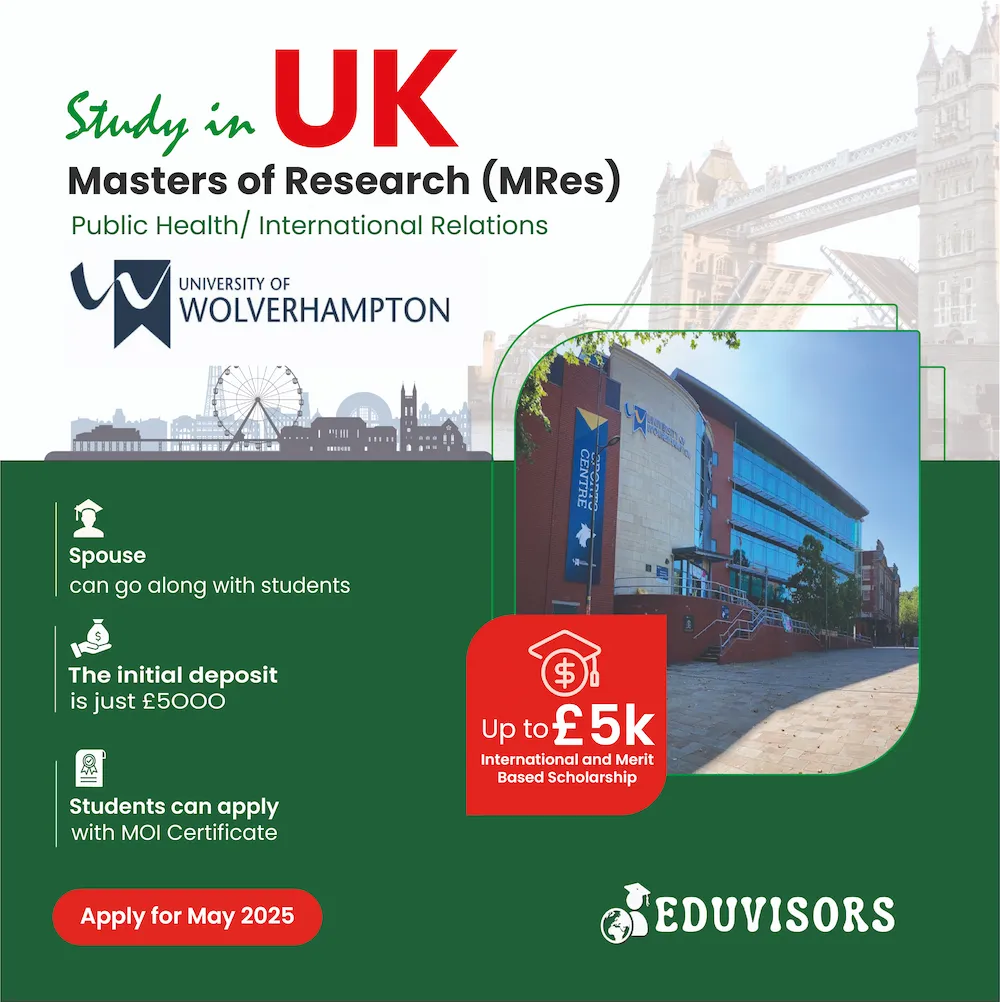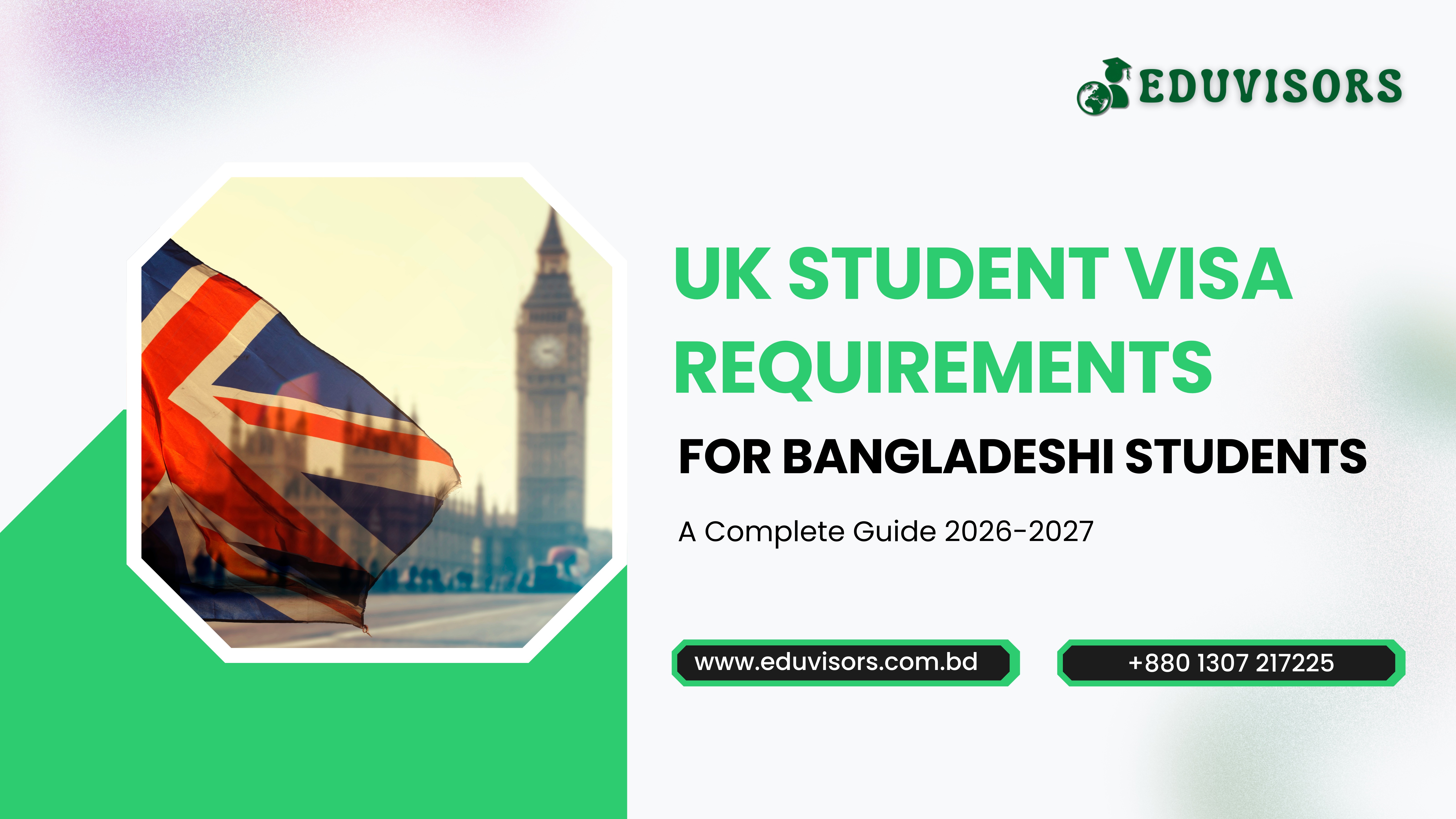Fundamental criteria for studying abroad include meeting academic eligibility, proving language proficiency, demonstrating financial capability, and fulfilling visa and documentation requirements. These criteria are set by international universities and immigration authorities to ensure students are academically prepared and financially capable of studying overseas. Understanding these fundamental criteria helps students plan effectively, avoid application delays, and improve admission success.
Academic eligibility and requirements in the UK vary depending on the level of study and the institution. Here’s an overview:
Assessing Academic Credentials:
Review the specific academic qualifications required for the course you are applying for. For undergraduate studies, this could include particular grades or subjects at the high school level or a relevant bachelor’s degree for postgraduate studies and Ph.D.
For Undergraduate:
- Academic Transcripts for English language tests taken in 10th and 12th grade.
- The results of other admission tests, such as the SAT, the LNAT Exam for law, the Biomedical Admissions Test (BMAT) for medical, biomedical, and dental programs, and the Mathematics Admissions Test (MAT) for bachelor’s degrees in sciences and engineering,
For Postgraduate:
- Academic Transcripts from 10th, 12th, and bachelor’s degree
- Additional test results for admittance, such as the Graduate Medical School Admissions Test (GAMSAT Exam), GMAT, and GRE
For Ph.D.
- For postgraduate and PhD, It is required to have a 4-year bachelor’s (Hons) degree or a degree that is comparable to a master’s.
Language Proficiency Tests
International students must submit their IELTS, TOEFL, and, most recently, Duolingo test results as part of the application process. UK institutions only offer English-language courses, and applicants must demonstrate their fluency in the language to study there. These grades are regarded as one of the most crucial prerequisites for enrollment at institutions in the United Kingdom.
Subject-Specific Prerequisites
STEM Subjects (Science, Technology, Engineering, and Mathematics):
Mathematics and Sciences:
Universities frequently require a good high school background in mathematics and science topics, especially for disciplines like engineering, computer science, physics, and mathematics.
Business program:
A solid background in mathematics, especially courses that emphasize quantitative analysis, is frequently required for business and economics programs.
Medicine and Health Sciences:
Science and Biology: A solid foundation in biology and other sciences is typically required for medical degrees and other health-related courses. Some may also call for courses, such as chemistry.
Law and Social Sciences:
Varied Requirements: While specific topics may not always be required, law courses may assess students’ critical thinking and analytical abilities. Depending on the field of study, there may be prerequisites in the social sciences.
Financial Planning and Management
For overseas students studying in the UK, effective financial management and planning are essential to a fulfilled and successful academic career. It entails being aware of and ready for the costs related to living expenses, tuition, housing, medical expenses, and other incidentals.
Tuition Fees Estimation:
Undergraduate Programs (bachelor’s degree):
- Annual Fees: Tuition for international undergraduate students can range from £10,000 to £30,000 annually for most courses.
Master’s degree postgraduate programs:
- Annual Fees: International postgraduate tuition fees normally range from around £10,000 to £40,000 annually, depending on the course and university.
Ph.D. programs for doctors:
- Annual Fees: International students’ Ph.D. fees differ greatly. They can cost anywhere from £12,000 to £30,000 per year or even more for specialized courses or enrollment at an esteemed college.
Living Expenses and Budgeting
Compared to other regions of the United Kingdom, London boasts a high living level. It is anticipated that overseas students will spend £15,600–16,800 in London and £10,800–15,600 in other parts of the United Kingdom annually. It covers all living costs, including housing, food, travel, medical care, utilities, phone bills, and socializing.
Scholarships and Financial Aid
The United Kingdom provides financial aid and scholarship opportunities for overseas students seeking higher education. These options can assist in defraying living expenses, tuition, and other charges. Here are some directions to investigate:
Scholarships for Universities:
Scholarships are awarded based on academic merit. Many colleges award scholarships based on prior academic success.
Subject-Specific Scholarships:
Certain scholarships are intended for particular programs or fields of study.
Research Scholarships:
Universities frequently offer research scholarships to students in Ph.D. programs and research-based courses.
Commonwealth Scholarships:
These awards provide financial aid to students from Commonwealth nations to study in the UK at different levels.
Financial Aid Programs:
Universities may offer financial aid or scholarships to assist with living expenses or course-related expenditures.
Bank Statements and Proof of Funds
Providing proof of funds for international students applying for a visa to study in the UK is a crucial part of the application process. Here’s what you generally need:
Requirement in Finances:
Students must prove to the UK government that they can pay for their living expenses and tuition while enrolled in classes there.
Bank Statements:
To get funding for living expenses and tuition, you must normally submit recent bank statements (generally from the last 28 to 31 days). Ensure the statements are from a reputable financial institution and are in your name or, if relevant, your sponsor’s name.
Sponsorship Letter:
If you receive financial assistance, you will require a letter from your sponsor attesting to their economic capacity and expressing their desire to pay for your expenses.
Legal and Documentation Process
For an international student pursuing studies in the UK, the legal and documentation process involves several key steps to ensure compliance and eligibility:
Passport and Visa Requirements
For international students planning to study in the UK, here are the typical passport and visa requirements:
Passport Validity:
Verify that your passport covers the period you intend to spend in the UK. You should add at least six months’ validity to your anticipated stay.
Tier 4 (also known as the Student Route Visa):
Applying for a Visa:
Most overseas students require a Student Route visa, formerly a Tier 4 visa, to study in the UK. The visa application process is usually completed online.
CAS (Confirmation of Acceptance for Studies):
This document verifies your admission to a course at the UK university of your choice and is required before you can apply for a visa.
Financial Requirements:
As previously said, you must show you have enough money to pay for your living expenses and tuition.
Test for Tuberculosis:
Certain candidates from specific nations may be required to take a tuberculosis (TB) test as part of the visa application procedure.
Biometric Data:
You must submit biometric data, such as your fingerprints and photos, at the visa application center.
Visa Fees:
Application fees must be paid depending on the kind and length of the visa.
Visa Processing Duration:
The duration of visa processing may differ according to the nation you are applying to. Given that visa processing times vary from a few weeks to several months, it is recommended that you use your visa well in advance of the commencement of your course.
Healthcare Surcharge:
According to my most recent update, students wishing to apply for a visa to access the UK’s National Health Service (NHS) typically must pay a healthcare surcharge.
Proof of Accommodation:
In certain situations, you may be asked to present documentation attesting to the lodging arrangements you made while in the UK.
Academic Transcripts and Certificates
Student copies of all required grade reports and pass certificates are also needed. For instance, students pursuing master’s degrees must turn in their passing certificates, all semester grades, and grades from grades 10 and 12. For every application, a minimum of one (and occasionally two) sets of copies are needed. All copies need to be verified.
Letters of Recommendation:
One of the most important papers needed for admission to study at UK universities is a letter of recommendation (LOR). One of your instructors or superiors must provide a letter of reference (LOR) reflecting your experience, accomplishments, and skills in the classroom or workplace. Students must submit a minimum of two recommendation letters.
Statement of Purpose (SOP)
A statement of purpose is one of the most crucial documents when applying to UK institutions. You can explain your goals for the future and why you want to study at the university in this statement. Universities use SOPs exclusively to get information about applicants, their goals, and how they may benefit the university.
Preparation for Cultural Changes
Preparing for cultural changes as an international student in the UK is crucial for a smooth transition. Here’s a brief overview:
Understanding Cultural Diversity:
International students studying in the UK must have a solid understanding of cultural diversity. Here are some tips for embracing and navigating cultural differences when studying overseas:
Mindfulness:
Accept diverse cultures, beliefs, and practices with an open mind. Realize that variety broadens your horizons and offers educational possibilities.
Cultural Interaction:
Interact with classmates from different backgrounds. Engage in cultural activities, groups, or society at your campus to foster cross-cultural interactions.
Adapting to New Social Norms
As an international student, adjusting to new social standards can be difficult, but it can also be a rewarding experience that helps you develop both culturally and personally.
Obstacles and Development
Cultural differences may occasionally cause difficulties. Make the most of these experiences to advance your development.
Exchanging Cultural Knowledge
Talk to others about your customs and culture. Plan events or participate in activities highlighting your nation’s customs, cuisine, and festivals.
Dealing with Homesickness
Dealing with homesickness while studying abroad can be challenging. Use video calls, messaging applications, or social media to stay in touch with friends and family. Pay attention to the experiences and opportunities that come with studying abroad.
Be open-minded and enjoy the experience of relocating to a foreign nation. Moreover, create a daily routine based on the new environment.
Language and Communication
Study the language, customs, and culture of the United Kingdom. Even if English is the primary language, learning local slang or phrases helps improve integration and communication.
Investigating and Adjusting
Discover the local cuisine, customs, and community. Be willing to explore new things and adjust to other lifestyles.
Health and Safety Considerations
For international students in the UK, prioritizing health and safety is essential. Here’s a brief overview of key considerations
Vaccinations and Medical Records
Check the vaccination requirements for the nation where you want to study before you leave. Certain vaccination records may be needed in certain countries to enter, while other countries may offer recommendations based on specific health hazards.
COVID-19 immunization
As per UK standards, ensure you have received the most recent COVID-19 immunization. The rules may change depending on the vaccination you had in your country of origin.
More Vaccinations
Find out if you require more shots than the UK advises overseas students to have. Vaccines against measles, mumps, rubella, and meningitis are common.
Medical Records
Maintain Records Convenient:
Ensure you always carry a copy of your medical records. It includes your medical history, current prescriptions, allergies, and records of any chronic ailments you may have.
Health Insurance
Health insurance is required for international students studying in the UK. Here’s what you should know about health insurance as an international student:
National Health Service (NHS)
The UK has the National Health Service (NHS), which provides healthcare services to residents. As an international student, you may access NHS services for free if:
- You’re studying a course that lasts for more than six months.
- You’re enrolled in a full-time course at a recognized institution.
Health Surcharge
When applying for a student visa lasting more than six months, you might need to pay the Immigration Health Surcharge as part of your visa application. This surcharge gives you access to NHS services during your stay in the UK.
Safety Tips and Emergency Protocols
Contact Your University Security Service in the UK. If you feel unsafe on campus or see something that doesn’t seem right, don’t hesitate to ask for help. Most universities have a security service that you can contact 24/7. The staff at these services are trained to handle any emergency, so don’t hesitate to call them if you need help. Another great resource for staying safe on campus is your student union. The Student Union will often have a security team on hand.
Logistics and Travel Arrangements
Arranging logistics and travel as an international student in the UK involves several key steps:
Booking Flights
Booking flights as an international student in the UK involves several considerations to ensure a smooth and hassle-free travel experience:
Planning
- Advance Booking: Book your flights well to secure better deals and preferred schedules, especially during peak travel times.
- Flexible Dates: Be flexible with your travel dates to find cheaper options. Midweek flights or off-peak hours often offer more affordable fares.
Documentation
- Passport Validity: Ensure your passport is valid for travel, including any potential delays or plan changes.
- Visa Requirements: Check visa requirements for your destination and any countries you might transit through. Ensure you have the necessary visas before booking.
Accommodation Options
When it comes to accommodation options for international students in the UK, there are several choices to consider, depending on preferences, budget, and convenience:
On-Campus Accommodation
- University Halls of Residence: Many universities offer on-campus housing options. These residence halls are often close to academic buildings, providing convenience and a sense of community among students.
Private Accommodation
- Private Student Halls are similar to university accommodations but managed by private companies. They often offer amenities like gyms, communal spaces, and different room options.
- Private Rentals: Renting a flat or house personally offers more independence and diverse options.
Local Transportation Public Transportation
- Buses: Common and accessible, buses cover various routes within cities and towns. Look into weekly or monthly bus passes for potential savings.
- Trains are efficient for intercity travel and connect major cities and towns. Consider railcards for significant discounts on train fares.
- Trams: Some cities, like Manchester and Birmingham, have tram systems that ease local commuting.

















